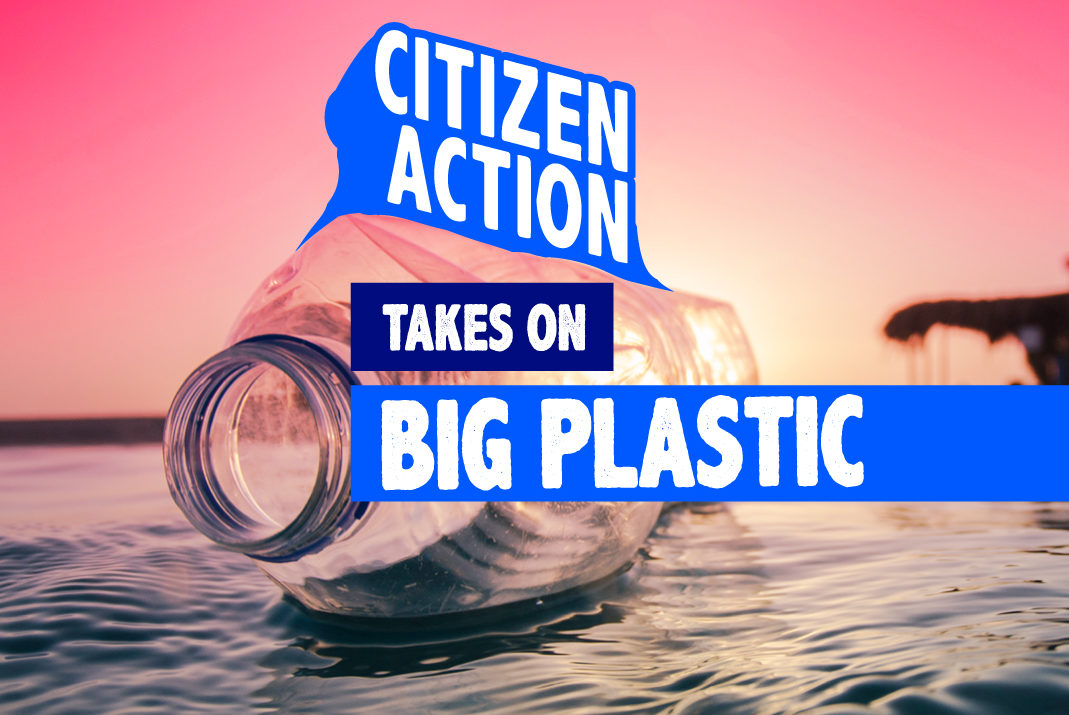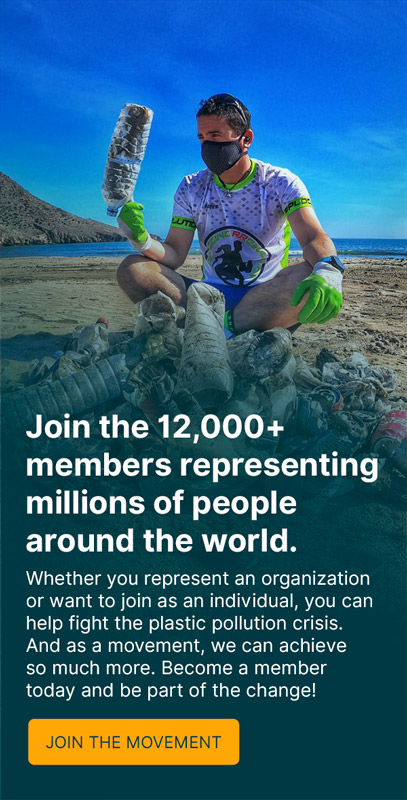FOR IMMEDIATE RELEASE
Brand audits highlight citizen action to hold polluters accountable, getting to the root cause of the plastic pollution crisis
Break Free From Plastic, the global movement working to stop plastic pollution, is taking coastal cleanups a step further – by naming the brands most responsible for the plastic pollution found on our beaches and beyond.
Throughout a global week of action, September 9-15, 2018, groups under the #breakfreefromplastic banner have collectively organized more than 180 cleanups in 49 countries to incorporate data on corporate plastic pollution found in communities across the world. These particular events will conclude on World Cleanup Day, September 15, and a report will follow citing brand responsibility for the plastic pollution found in nearly 150 cities around the globe. #breakfreefromplastic is looking forward to hosting more brand audits until coastal cleanup becomes of a thing of the past.
"Corporations cannot greenwash their role out of the plastic pollution crisis and put the blame on people, all the time. Our brand audits make it clear which companies are primarily responsible for the proliferation of throwaway plastic that's defiling nature and killing our oceans. Their brands provide undeniable evidence of this truth," stated Von Hernandez, #breakfreefromplastic Global Coordinator.
From San Francisco, California to Dar es Salaam, Tanzania, organizers are working in solidarity under the global #breakfreefromplastic banner. Nipe Fagio, a Break Free organization in Dar es Salaam, is no stranger to brand audits. In fact, the group is organizing cleanups at more than 30 sites across the city during World Cleanup Day to shape the future for a cleaner Tanzania. “Over 50% of waste collected during our beach cleanups in the last 6 months comprise of plastic that range from packaging materials and beverage bottles manufactured by MeTL group, to toothbrushes, straws and pens,” shares Navonaeli Omari-Kaniki, Program Coordinator at Nipe Fagio.
"Brand audits are about creating corporate accountability for the plastic pollution that litters our oceans, waterways, and communities,” said Graham Forbes, Global Plastics Project Leader at Greenpeace. “For far too long, companies have put the onus on the individual to just recycle more, but we know that only 9 percent of plastics ever made have actually been recycled. It's essential that these corporations take concrete steps to innovate away from single-use plastic. People all over the world will continue to hold them accountable until they do,” he added.
By categorizing and counting branded plastic packaging during cleanup efforts, #breakfreefromplastic is identifying the corporation's most responsible for plastic pollution.
“Corporations like Coca-Cola, PepsiCo, Nestle, Unilever, Starbucks, Procter & Gamble, and McDonald’s have a major role to play when it comes to plastic pollution. We are sold coffee, soda, chips, candy, sandwiches, shampoo, soap, and even fruits and vegetables packaged in throwaway plastic. It’s time for these corporations to take responsibility for single-use plastic,” said Stiv Wilson, Campaigns Director at The Story of Stuff Project.
“As First Nations Peoples, we continue to resist corporate colonialism which profits from extractive economies and disposable plastic culture while pushing the burden of responsibility to community recycling and individual consumer choice,” stated Mati Waiya, Executive Director at the Wishtoyo Chumash Foundation. “We maintain our traditional responsibilities to protect our homelands and waters – that includes holding corporations accountable for their role in generating this excessive waste,” Mati Waiya added.
#breakfreeformplastic is mobilizing massive citizen muscle with a common mission so corporations can no longer frame the issue as one of only consumer responsibility. The movement boasts nearly 1,300 groups working towards a similar goal of holding companies accountable for the plastic waste they produce.
“It’s unfair for North American and European companies who earn billions of dollars annually to pass the burden of managing the waste of their products to communities and cities in the global south. These companies know full well that these countries lack the resources and capacity to handle this type of plastic waste in their systems,” stated Anne Larracas, Asia Pacific Managing Director at the Global Alliance for Incinerator Alternatives.
Member organizations of the #breakfreefromplastic movement involved in the global brand audit efforts include: Greenpeace International, Surfrider Foundation, 5 Gyres, EcoWaste Coalition, Global Alliance for Incinerator Alternatives, Health Care Without Harm, Mother Earth Foundation, Nipe Fagio, The Story of Stuff Project, Zero Waste Montenegro, Amicas De La Terra Mallorca, CEJAD, PlastiCo Project, NESMAC-KITARA, Student PIRGs, Inland Ocean Coalition, Planeteers of Southern Maine, Instituto Argonauta Para Conservação Costeira e Marinha, People and the Sea, Rockefeller University, Científicos de la Basura, Wishtoyo Chumash Foundation, and Let’s Do It World.
# # # # #
To view the brand audit toolkit, click here.
To learn why brand audits are better than clean-ups, click here.
About #breakfreefromplastic:
#breakfreefromplastic is a global movement envisioning a future free from plastic pollution. Since its launch in September 2016, nearly 1,300 groups from across the world have joined the movement to demand massive reductions in single-use plastics and to push for lasting solutions to the plastic pollution crisis. These organizations share the common values of environmental protection and social justice, which guide their work at the community level and represent a global, unified vision. www.breakfreefromplastic.org.
Press Contacts:
Shilpi Chhotray, #breakfreefromplastic (shilpi@breakfreefromplastic.org)
Claire Arkin, Global Alliance for Incinerator Alternatives (claire@no-burn.org)
Perry Wheeler, Greenpeace (perry.wheeler@greenpeace.org)
Highlights from past brand audits:
- Sept 2017: Freedom Island, Philippines → Of the total waste collected during an 8-day cleanup and brand audit, half of it was plastic. 6 international brands including Nestle, Unilever, and Procter & Gamble are responsible for nearly 54% of plastic waste found during the Freedom Island brand audit.
- March-September 2017: Bandung City, Cimahi City, and Bandung Regency, Indonesia → A total of 8,101 plastic waste items were collected from an 8-day waste assessment and characterization study. Top plastic polluters include: PT Indofood CBP Sukses Makmur Tbk, PT Santos Jaya Abadi, PT Unilever Indonesia Tbk, PT Mayora Indah Tbk, Wings Corporation, PT Djarum, Group Danone, PT Hanjaya Mandala Sampoerna Tbk., Orang Tua (OT), PT Garudafood Putra Putri Jaya.
- May 16-26, 2018: 18 states in India → Of the total waste collected, 46,100 pieces of plastic waste were branded, of which 47.5% were multilayer plastic packaging which can neither be recycled nor composted. Pepsi Co was found to be the top multinational brand responsible for the plastic waste crisis in the territories audited, followed by Unilever and Coca Cola. Results were published in time for World Environment Day, June 5.
- June 1, 2018: 5 cities in the Philippines → Over the course of a 12-month period found that single-use plastic packaging from multinational companies such as Unilever, Procter & Gamble, Nestlé, PT Mayora, Colgate-Palmolive, and Coca-Cola comprised almost three-fourths of all collected residual waste.



